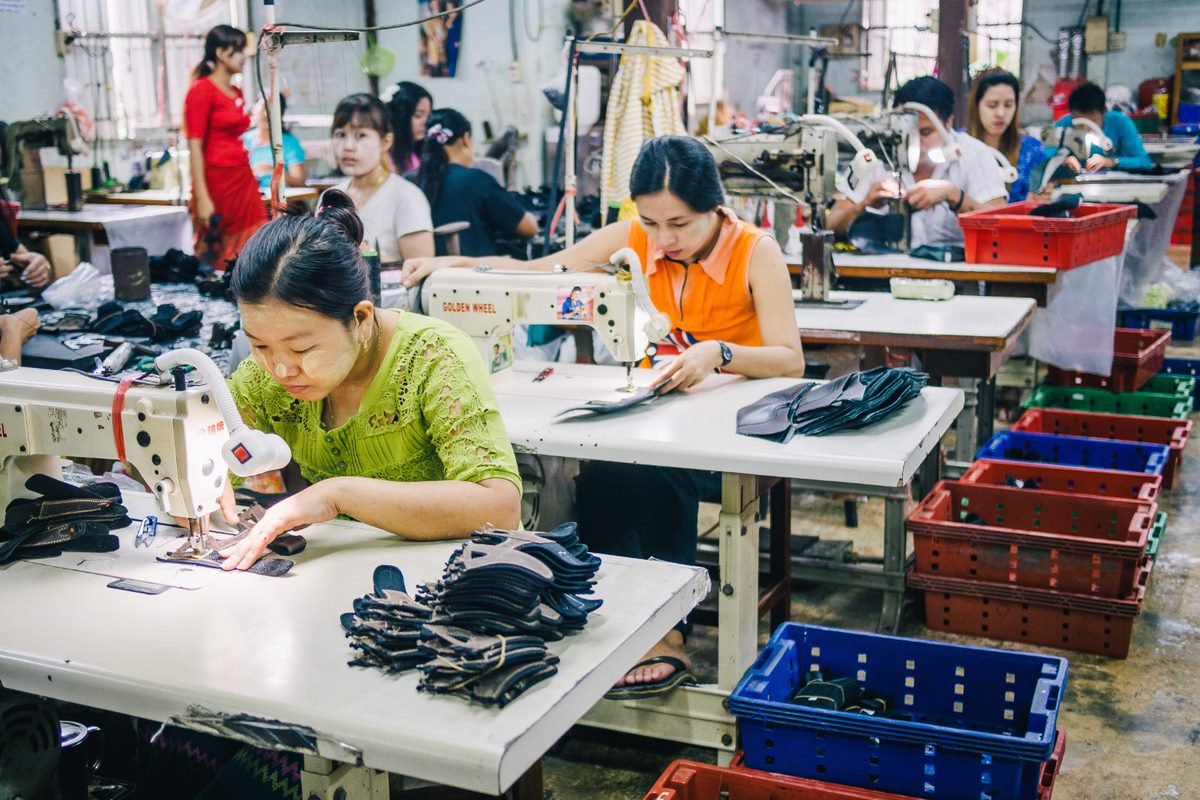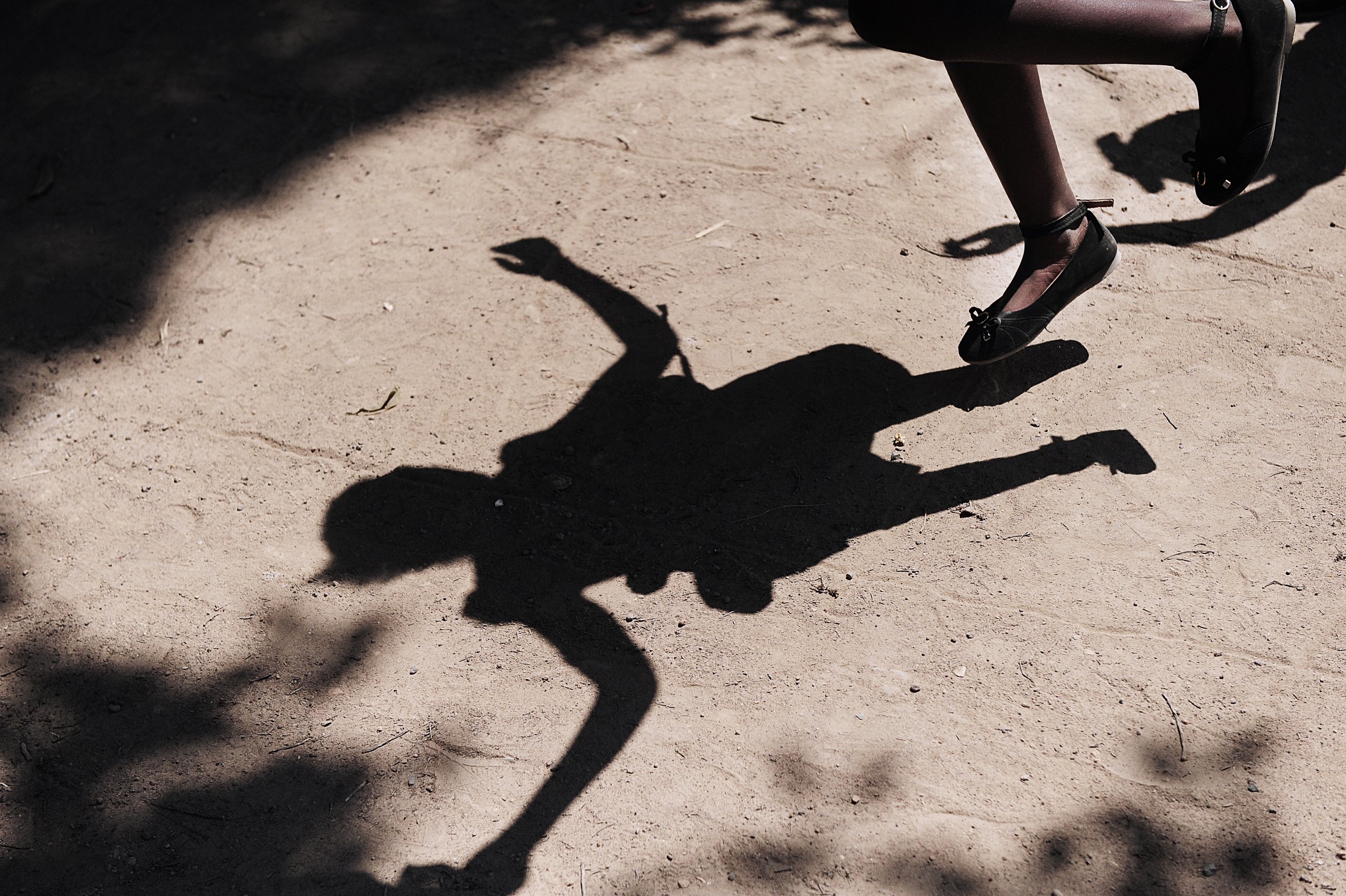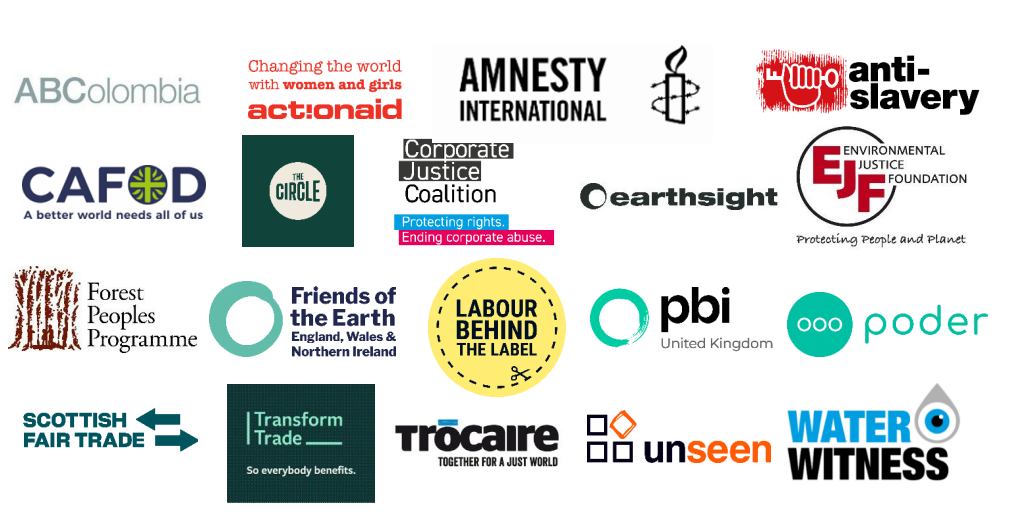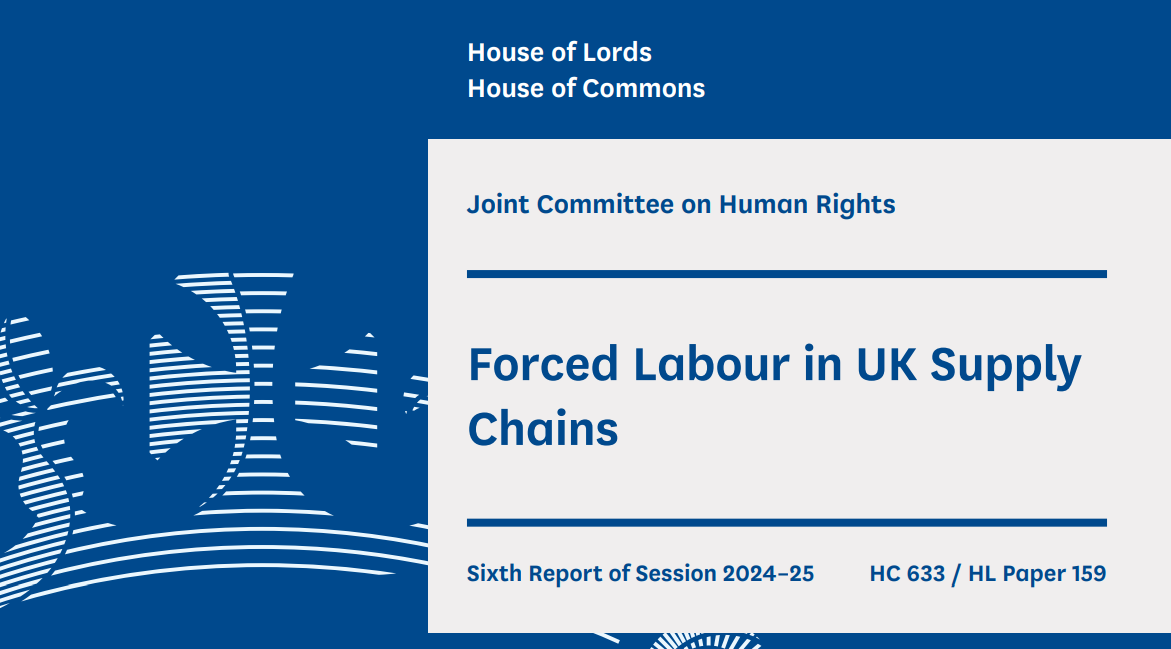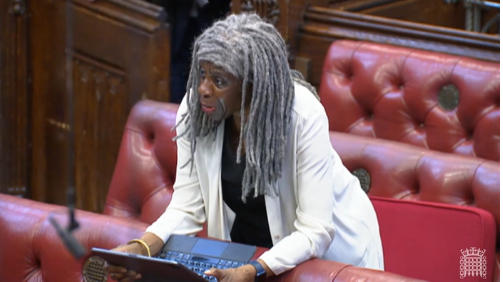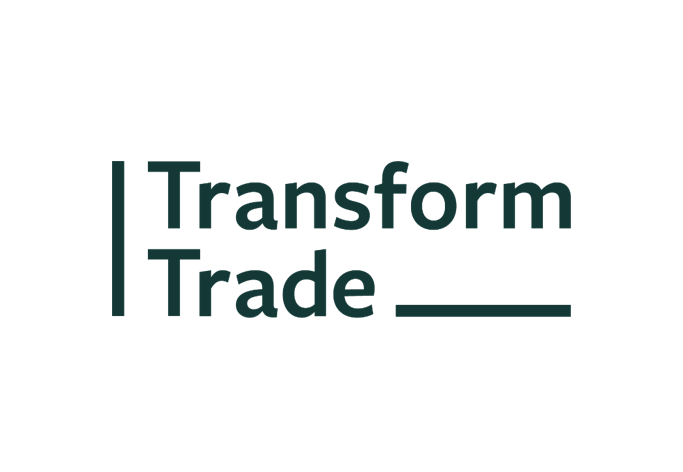
Together we can uphold human rights and protect the environment
A new law to hold businesses accountable
Supporting a new UK supply chain law
>225
Leading businesses and investors
>4 in 5
Britons
>40
Civil society organisations
Supportive decision makers
-

Baroness Young of Hornsey
Crossbench
-

Lord Hain
Labour
-

Layla Moran MP
Oxford West and Abingdon, Liberal Democrat
-

Sarah Champion MP
Rotherham, Labour
-

Ben Lake MP
Ceredigion, Plaid Cymru
-

Siân Berry MP
Brighton Pavilion, Green
-

Brendan O'Hara MP
Argyll, Bute and South Lochaber, SNP
-

Sammy Wilson MP
East Antrim, DUP
-

Colum Eastwood MP
Foyle, SDLP
-

Sorcha Eastwood MP
Lagan Valley, Alliance
-

Lord Prentis
Labour
-

Sarah Green MP
Chesham and Amersham, Liberal Democrat
Snapshot of decision makers’ pledge
I support a new law on business, human rights and the environment to protect people and planet from abuse.
Businesses and investors calling for a new UK law include:
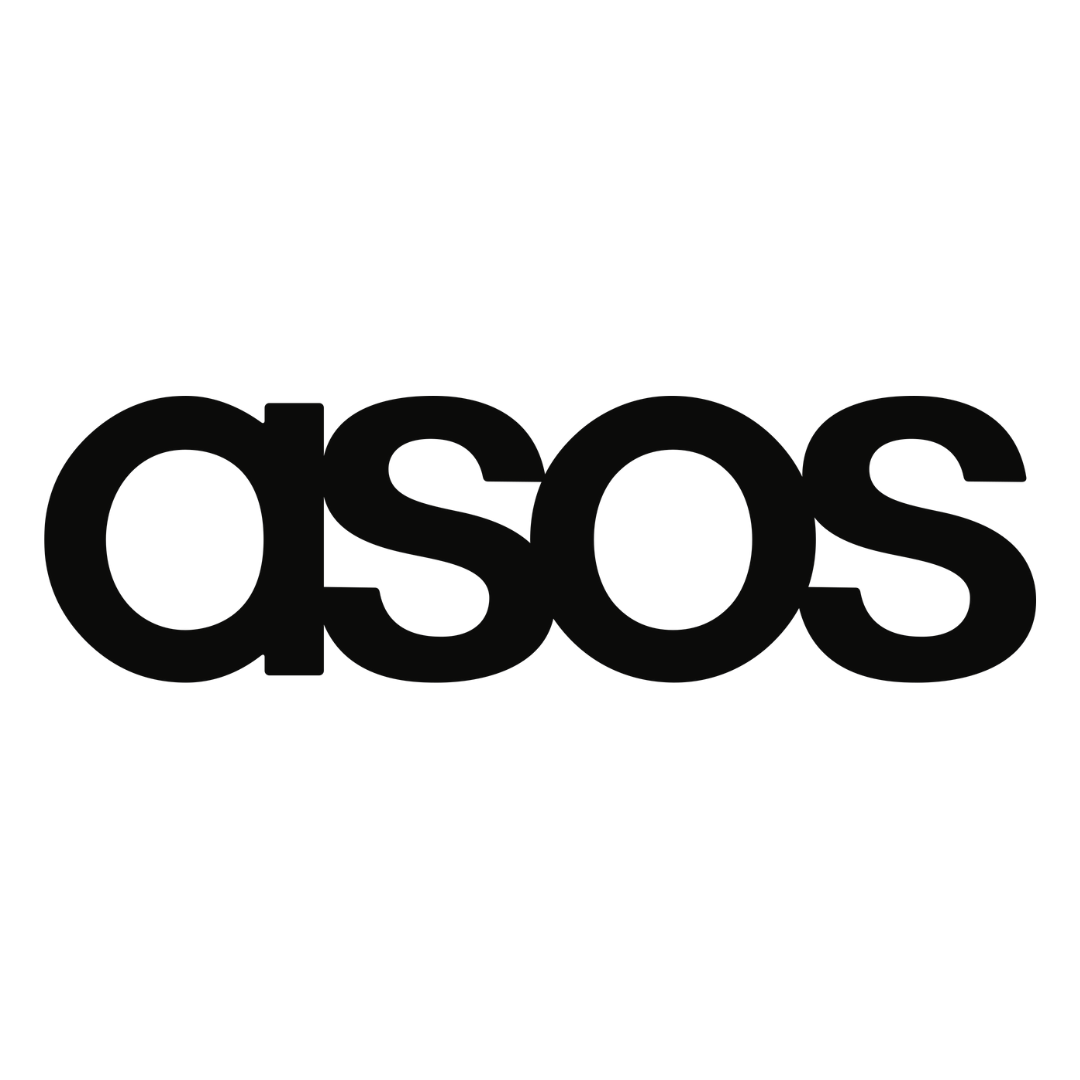











Case studies
-
![]()
Shell, Nigeria
-
![]()
Boohoo, UK
-
![]()
PPE during Covid-19, UK
-
![]()
BAT & Imperial Tobacco, Malawi
-
![]()
Beef, Brazil
-
![]()
Barrick Gold, Tanzania
-
![]()
Spyware, Bahrain
-
Tesco, Thailand
-
![]()
Anglo-American Mining, Zambia
Act now!
Please ask your MP or another decision maker - for example a mayor, a Peer or a council leader - to sign our decision makers' pledge.
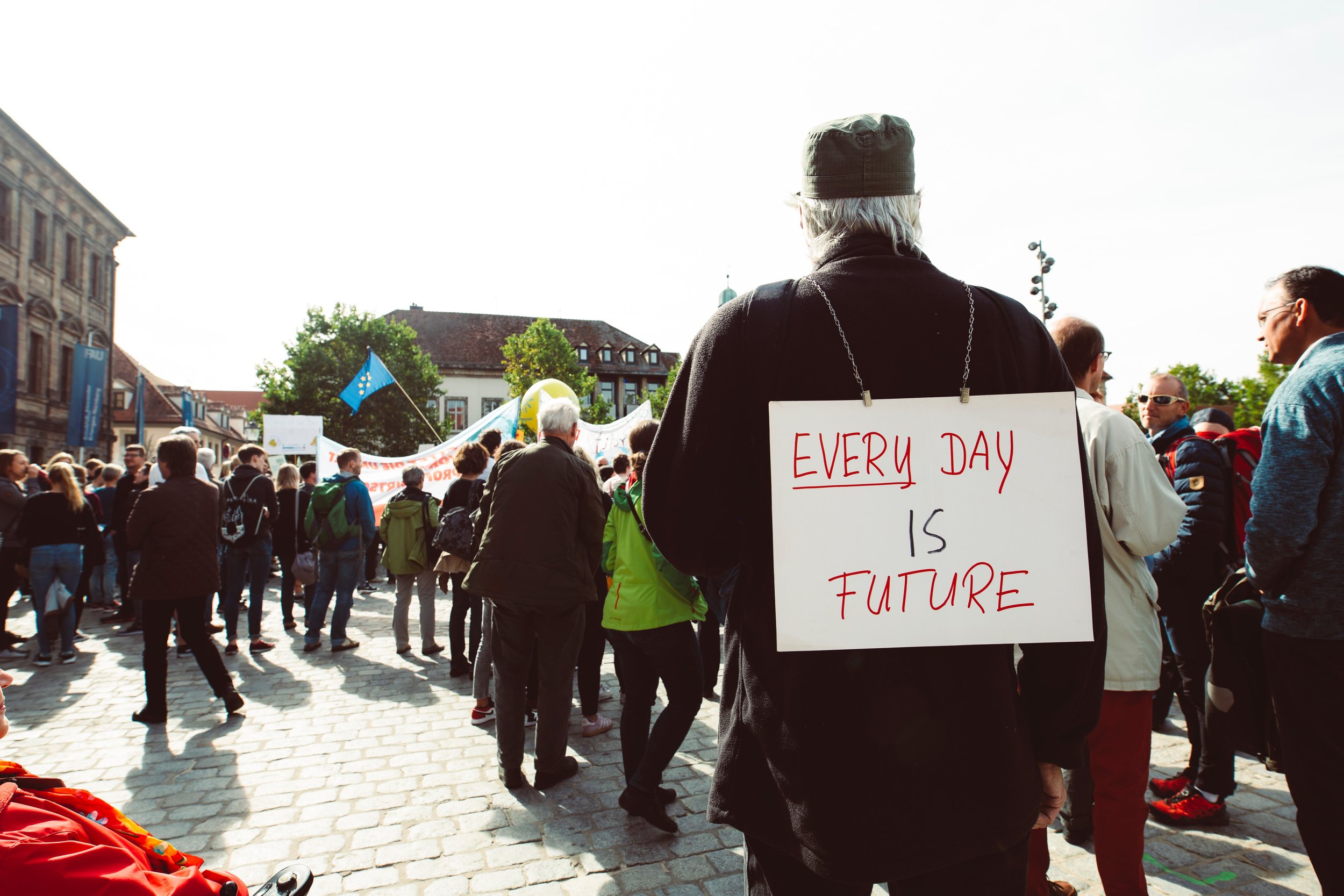

Updates & Resources
As part of its new Trade Strategy, launched on 26 June 2025, the Department for Business and Trade (DBT) has announced that it will be reviewing the UK’s approach to ensuring responsible business conduct in global supply chains. In this statement, the UK’s Corporate Justice Coalition responds with six criteria that must be met to ensure meaningful outcomes for people and the planet.
Protecting and Realising the Human Rights of Indigenous Peoples, Afro-descendant peoples and Local Communities in the Context of Business and Human Rights is a new position paper co-authored by Indigenous, Afro-descendant, local community and civil society leaders who stand up daily against business harms to their human rights and the environment – harms connected to UK businesses and financial institutions.
A new report on Forced Labour in UK Supply Chains, by the Joint Committee on Human Rights builds on recommendations first made in 2017, calling for the government to introduce mandatory human rights due diligence and a “failure to prevent” mechanism into domestic law.
Read “Brew it Fair” to dive deeper into the reality for tea workers today and how we can all play a part in making the trade system fairer.
The UN Committee on Economic, Social and Cultural Rights has published a new report assessing the UK’s adherence to the International Covenant on Economic, Social and Cultural Rights and urging the UK Government to introduce mandatory human rights due diligence requirements, guarantee effective access to remedy and prioritise sectors that are causing serious human rights violations beyond borders.
As part of a recent inquiry launched to inform a new Employment Rights Bill, the Business and Trade Commons Select Committee has recommended that the Government should introduce mandatory human rights due diligience legislation to align with global legislation and consider the creation of ‘Failure to Prevent’ offences like those set out in the Economic Crime and Corporate Transparency Act 2023 to strengthen the Modern Slavery Act.
A new Peace Brigades International (PBI) UK investigation shows links between UK companies, environmental devastation and attacks on rights activists calling for law to ensure effective due diligence.
The Modern Slavery Act Committee summarises that international best practice has moved beyond requiring transparency to requiring companies to perform due diligence on their supply chains, and take action to eradicate modern slavery in their supply chains.
The report assesses the corporate implementation of the UN Guiding Principles on Business and Human Rights in Northern Ireland. It finds that none of NI's top 20 companies could demonstrate full engagement with the basic expectations set out by the UN Guiding Principles on Business and Human Rights. The highest score was 54%.
Lola Young's Private Members Bill has it's second reading in the House of Lords. Anti-Slavery International explains why such ground-breaking legislation is urgently needed in the UK.
YouGov polling from April 2024 shows that more than 80% of British adults want new UK laws requiring British companies to prevent human rights abuses and environmental damage in their supply chain, and 73% think UK companies should be doing more to reduce their contribution to global warming.
The statement calls for a new law that ensures accountability when businesses cause or contribute to harms. It calls for the law to hold businesses legally liable for harm, loss and damage arising from their failure to prevent adverse human rights and environmental impacts within their operations and throughout their global value chains and to require them to adequately compensate victims of abuse.
In the Parliamentary session 2023-2024, Baroness Lola Young introduced a Private Members Bill in the House of Lords. The “Commercial Organisations and Public Authorities Duty (Human Rights and Environment) Bill” had its first reading on 28 November 2023 and its second reading on 10 May 2024 before collapsing due to the 2024 election.
This report documents in 15 case studies how well-known UK companies, financial institutions and public bodies have been and continue to be connected to human rights abuses, worker exploitation and environmental harm at home and abroad. Find out how a Business, Human Rights and Environment Act could have made a difference.
On 15 November 2015 the Fundão Dam, a holding structure for waste material from iron ore processing, collapsed and released 45 million cubic metres of waste into the River Doce. This killed 19 people and impacted the human rights of hundreds of thousands of people in surrounding communities including the human rights to life, health, water, food, adequate housing, work and education. Find out in our case study how a Business, Human Rights and Environment Act could have made a difference.
JCB’s sole dealer in Israel is the Israeli company Comasco which holds contracts with Israel’s Ministry of Defence for the maintenance of the same model of JCB machines used in the demolition of Palestinian homes and property, and the construction of Israeli settlements. Find out in our case study how a Business, Human Rights and Environment Act could have made a difference.
UK development finance is connected to palm oil plantations in northern Congo. Local communities claim that part of the plantations sit on land that was taken from them by the Belgian colonial administration. Land defenders are facing harassment and intimidation. Workers have been forced to work with toxic chemicals and local sources of drinking water are reportedly contaminated by industrial waste from the plantation. Find out in our case study how a Business, Human Rights and Environment Act could have made a difference.
Communities in Liberia claim that UK agri-business EPO’s oil palm plantations have encroached on their land, which was illegally cleared for plantation, and that activities went ahead without their consent. As a result, they have lost their livelihoods, and community members who protested faced violence and intimidation. Find out in our case study how a Business, Human Rights and Environment Act could have made a difference.
BHP Group, Anglo American and Glencore were the joint owners of the Cerrejón coal mine in La Guajira, Colombia. The mining operations have led to the dispossession and displacement of 35 Wayúu Indigenous and Afro-descendant communities from their ancestral land, at times by brutal police evictions. Find out in our case study how a Business, Human Rights and Environment Act could have made a difference.
Research has shown that dozens of international brands, including UK companies Marks & Spencer, Primark, River Island and Tesco are at risk of using cotton that is produced or processed by Uyghur forced labour. Companies have called for stronger laws, and a number of companies, including Marks & Spencer, have signed a “call to action” to remove their value chains from the region.
50 businesses, including the British Retail Consortium, Tesco and Unilever, call on the UK government to urgently bring forward ambitious primary legislation to mandate companies to carry out human rights and environmental due diligence.
At the end of May, CJC joined the All-Party Parliamentary Group on Human Rights to host the event “Levelling the playing field for UK companies: Mandatory supply chain due diligence to protect human rights and the environment” in Parliament.
When the Sunday Times published an investigation alleging labour exploitation, deplorable working conditions, and illegally low rates of pay – as low as £3.50 an hour – in Leicester-based factories making clothes for Boohoo, it shocked the UK. Find out in our case study how a Business, Human Rights and Environment Act could have made a difference.
For decades, the Kabwe mine was operated without adequate environmental safeguards, leading to lead contamination of the soil. Medical studies conducted over the past 45 years have shown extreme levels of lead in young children which has affected generations with lead encephalopathy and fatal lead poisoning. Find out in our case study how a Business, Human Rights and Environment Act could have made a difference.
Surveillance technologies such as FinFisher have been used as a means to exercise political control and to spy on activists, human rights defenders, journalists and dissidents to stifle political opposition and undermine democratic development. Find out in our case study how a Business, Human Rights and Environment Act could have made a difference.
Workers in Mae Sot face a weak rule of law, substandard wages and labour conditions, as well as employers denying workers the rights to join unions and exercise their rights to freedom of association and collective bargaining. Find out in our case study how a Business, Human Rights and Environment Act could have made a difference.
The Kurya or Kuria people are the majority ethnic group of Tarime district. The mine severely impacted their way of life and they suffer from brutal violence. Find out in our case study how a Business, Human Rights and Environment Act could have made a difference.
Indigenous communities in the Amazon are continuously battling for land ownership and land use rights. Workers at cattle ranches were forced to work 17 hours a day and were left to live in deplorable conditions. Find out in our case study how a Business, Human Rights and Environment Act could have made a difference.
Malawi is one of the top five tobacco leaf-producing countries in Africa. Farmers often work under exploitative and hazardous conditions. In certain tobacco producing regions, 57% of children are engaged in child labour on tobacco farms. Find out in our case study how a Business, Human Rights and Environment Act could have made a difference.
Over a number of decades, oil spills from Shell’s operations led to devastating environmental impacts with disastrous consequences for the local residents. The spills contaminated the communities’ land and waterways which they relied on for farming, drinking, and washing. Find out more details in our case study and how a Business, Human Rights and Environment Act could have made a difference.
Supporters








